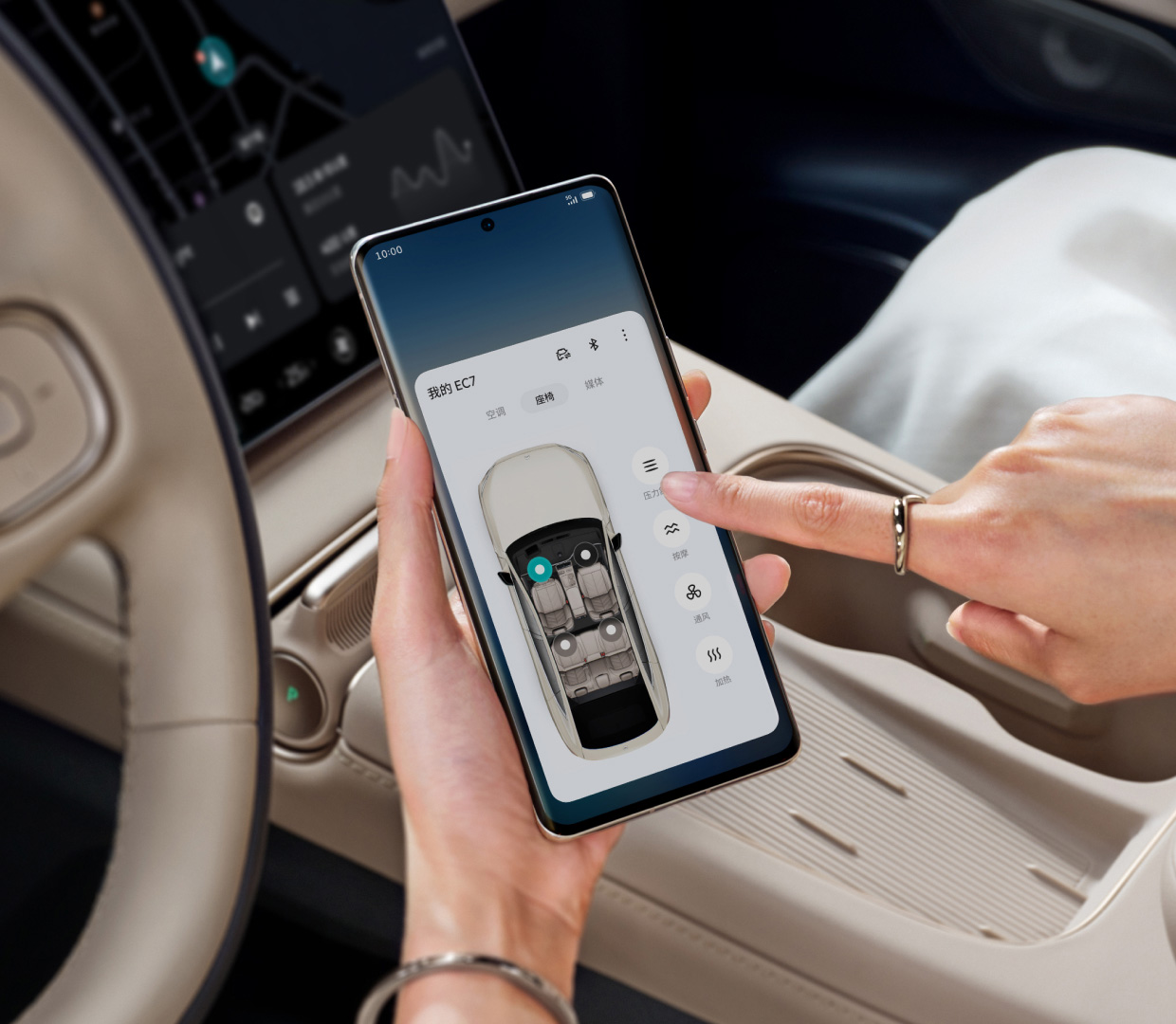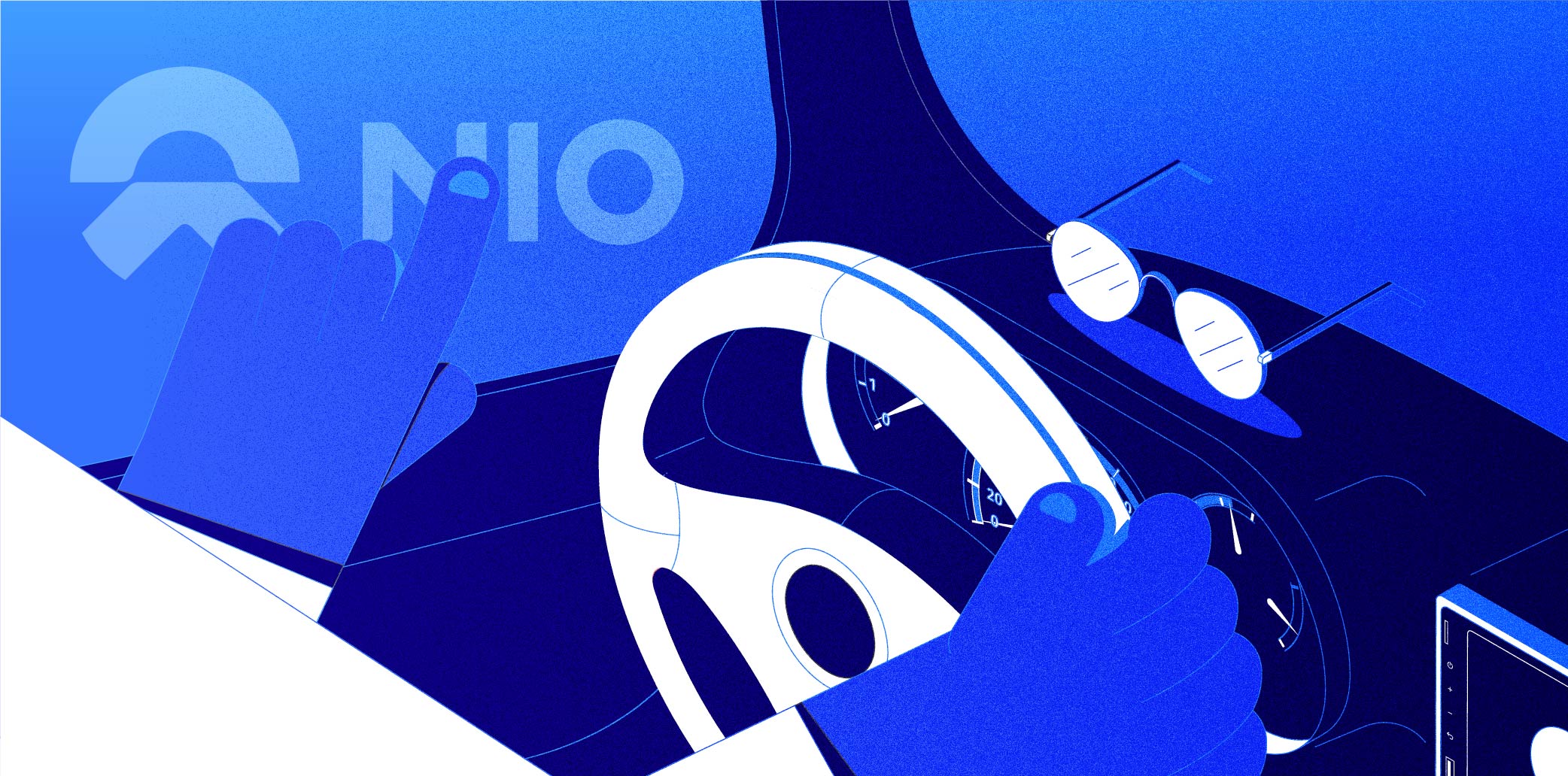When Nio decided to venture into the smartphone business just over a year ago, the move seemed perplexing, and for good reason. It has done relatively well in the automobile manufacturing business, and smartphones are a cutthroat industry. Fast forward to recent months, however, and the move is starting to make sense.
On August 4, Nio announced its achievement of a significant milestone as its smartphone products have been granted approval by the Chinese authorities to access and connect with the internet. This means that Nio will be able to integrate its smartphones with vehicles using ultra-wideband (UWB) technology, a feature currently available in only a handful of Android device models, in addition to Apple’s iPhones.
UWB technology, known for its high-precision positioning capabilities, adds a new dimension to Nio’s smartphones. This technology equips the smartphones with location recognition capabilities, on top of standard Bluetooth connectivity.
Nio’s foray into UWB technology mirrors a similar development by Huawei. On the same day as Nio’s announcement, Richard Yu, CEO of Huawei’s intelligent automotive business unit, unveiled a new generation of short-range wireless connectivity technology during the company’s developer conference.
Known as NearLink, Huawei’s new wireless connectivity technology is designed to leverage the strengths of traditional wireless technologies such as Bluetooth and Wi-Fi. It’s well-suited to serve cross-device connectivity use cases across various scenarios, including consumer electronics, electric vehicles, industrial automation, and more..
NearLink stands out for its ability to turn smartphones into digital car keys. During the conference, Huawei showcased the use of NearLink to connect its smartphone with a BYD vehicle. A NearLink-enabled smartphone can display on screen the user’s position and proximity to the vehicle in 20-centimeter intervals, highlighting the technology’s precision not only in connectivity but also in positioning.
Strong connectivity and precise positioning are two fundamental requirements for automakers aiming to turn smartphones and wearables into digital car keys. Currently, smartphone-based digital car keys typically rely on Bluetooth Low Energy (BLE) for stable connectivity but lack the ability to pinpoint locations precisely. While they can be used to unlock vehicles once in proximity, they are unable to accurately identify the positions of users.
High-end automakers like Nio want to synergize vehicles and smartphones by incorporating positioning and identity-matching capabilities. This is largely out of belief that such features will contribute to more seamless user experiences.
Industry experts suggest that the likes of Nio’s UWB technology and Huawei’s NearLink should be sufficiently capable of enabling cars to recognize drivers, co-drivers, and rear-seat passengers. This information can be utilized to facilitate more advanced vehicle settings and enhance hospitality features, thereby improving overall user experiences.

It’s worth noting that Nio has joined the Car Connectivity Consortium (CCC) and is collaborating with smartphone manufacturers to establish industry standards. CCC oversees the adoption of connectivity technology such as BLE and UWB, aligning with the open standards approach of Huawei’s NearLink. Industry-wide standardization could facilitate the evolution of digital car keys from mere convenience to become a significant market segment.
The smartphone-based car key market has long been a battleground behind the scenes. Users have enjoyed the convenience of using their smartphones as keys, seemingly benefiting automakers while posing no threat to smartphone manufacturers. However, with the entry of major companies like Apple, Xiaomi, and Huawei into the automotive market, this landscape has become more complex.
Vehicle manufacturers striving to develop digital car keys must overcome multiple challenges. For one, implementing digital car keys on the Android platform requires not only Bluetooth communication but also integration with a car control app. Android’s system, comprising various features like background app closure, could erratically shut down car control apps, posing stability issues.
Some manufacturers have gone to painstaking lengths to mitigate this issue, resorting to paying smartphone manufacturers to ensure their car control apps stay active. However, this approach doesn’t always yield results as the automakers could be reluctant to overpay, and smartphone manufacturers may lack the motivation to cooperate fully.
Such collaborations may also take a long time to come to fruition. Both Nio and Xpeng Motors have collaborated with smartphone companies such as Oppo and Vivo, which are not involved in car manufacturing. These partnerships took at least 2–3 years to materialize.
Thus, Nio’s strategic move to develop its own smartphones could reflect the company’s commitment to gain control and improve its efficiency. After all, companies like Nio have accumulated substantial financial resources in their early years, offering them more leverage to expand their research horizons and keep pace with competitors.
In Nio’s case, solving the connectivity issue is just one facet of the overarching problem. The bigger challenge lies in convincing Nio vehicle owners who use iPhones to make the switch. Unlike the Android system deficiency, this is a challenge unresolvable with money alone.
Apple has established specific Bluetooth protocols for Bluetooth that grant developers independent privileges upon registration. This means that iPhones doubling as digital car keys can continue to function as such even after the car control app has been deleted from the device.
However, as companies strive to move beyond Bluetooth and develop digital car keys utilizing UWB technology, Apple’s closed ecosystem becomes a roadblock. While Nio vehicles and Apple’s smartphones are both equipped with UWB modules, the latter’s unwillingness to open its development interfaces universally to all car manufacturers remains an obstacle.
Thus far, BMW is seemingly the only vehicle manufacturer to have obtained the rights to develop UWB technology using Apple’s interface. This likely factored into Nio’s decision to venture into smartphone development.
Insiders have indicated that, at present, the Nio smartphone offers enhanced connectivity with car controls but does not offer any other standout features. Nonetheless, it is expected to invest billions annually in this venture.
KrASIA Connection features translated and adapted content that was originally published by 36Kr. This article was written by Li Qin for 36Kr.

